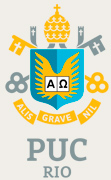Vol. 40, N° 2, May/Aug, 2018
Identity and Discourse in Securitisation Theory
Marcos Cardoso dos Santos

Abstract
This article examines the complementarities among Laclau and Mouffe’s discourse theory, Bourdieu’s notions of habitus and field, and Huysmans’s conception of discursive security strategy as a mediator of people’s relation to death. The interplay among these theories explains how hegemonic security discourses emerge. The self-referential aspect of the Copenhagen School’s Securitisation Theory (ST) does not contradict the existence of a relation of forces among securitising actors and audiences in given security fields, based on the ownership of social capital. This article rejects the theoretical positions adopted by Bigo, Tsoukala and Balzacq in terms of which ST is regarded as intersubjective. Utilising thediscourse theory of Laclau and Mouffe, it is possible to verify how egemonic security discourses are determined. Bourdieu’s concepts of habitus and field and Huysmans’s premises about security strategy also have implications for ST, mainly for the discussions about whether it has an intersubjective or self-referential aspect. As discourses of danger construct the political identities of states, the study of their influence on foreign policy is relevant to international relations. This article concludes that when the degree of otherness gets closer to the radical Other, extraordinary measures are easily tolerated by the agents involved in the securitisation process.
Keywords: Copenhagen School; discourse theory; habitus; hegemony; identity; securitisation.
DOWNLOAD: Identity and Discourse in Securitisation Theory
 Instituto de Relações Internacionais
Instituto de Relações InternacionaisRua Marquês de São Vicente, 225 - Vila dos Diretórios, Casa 20, Gávea - Rio de Janeiro - RJ, Brasil
Tel/Fax: +55 21 3527-1557 3527-1558 3527-1560

